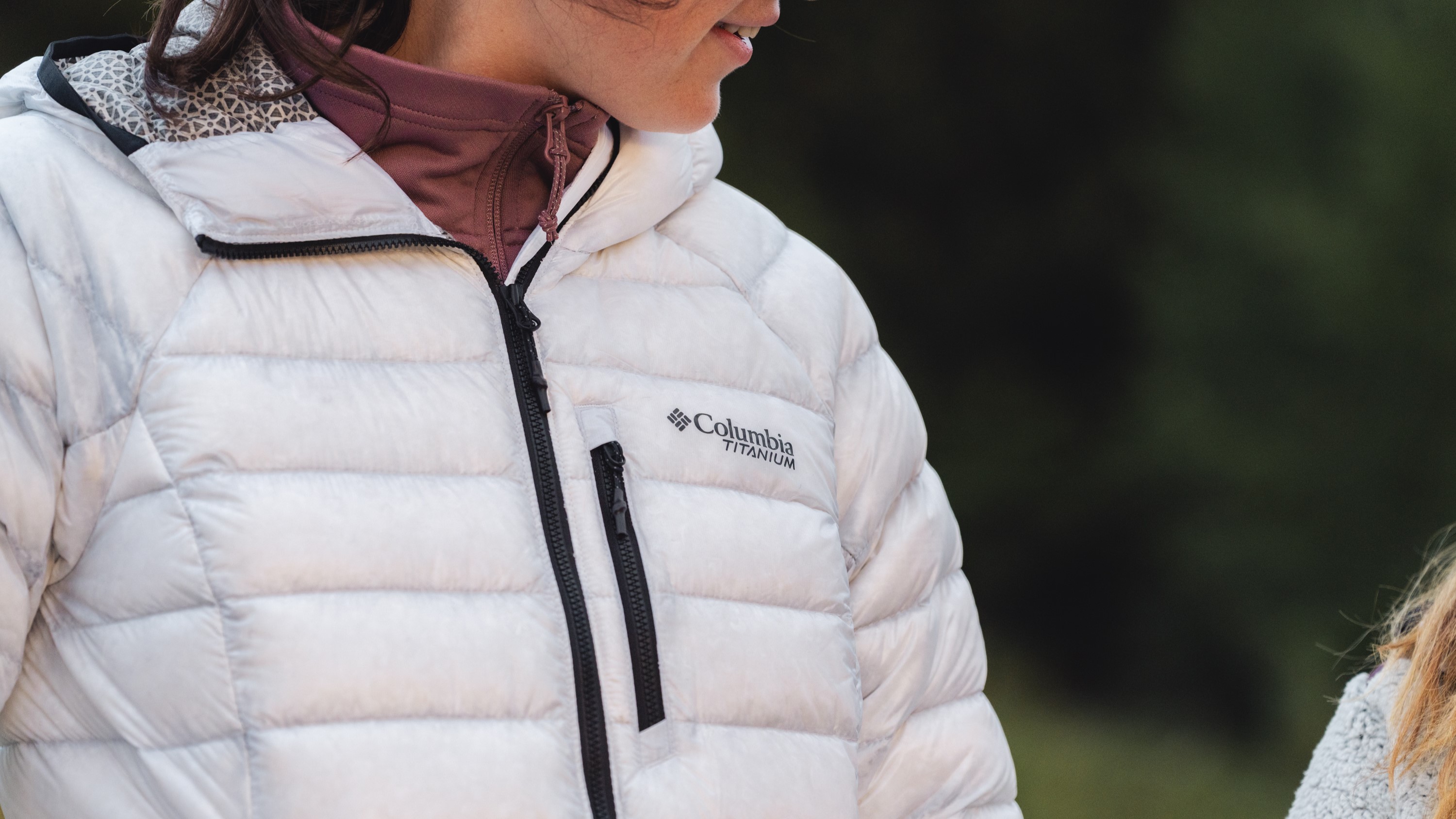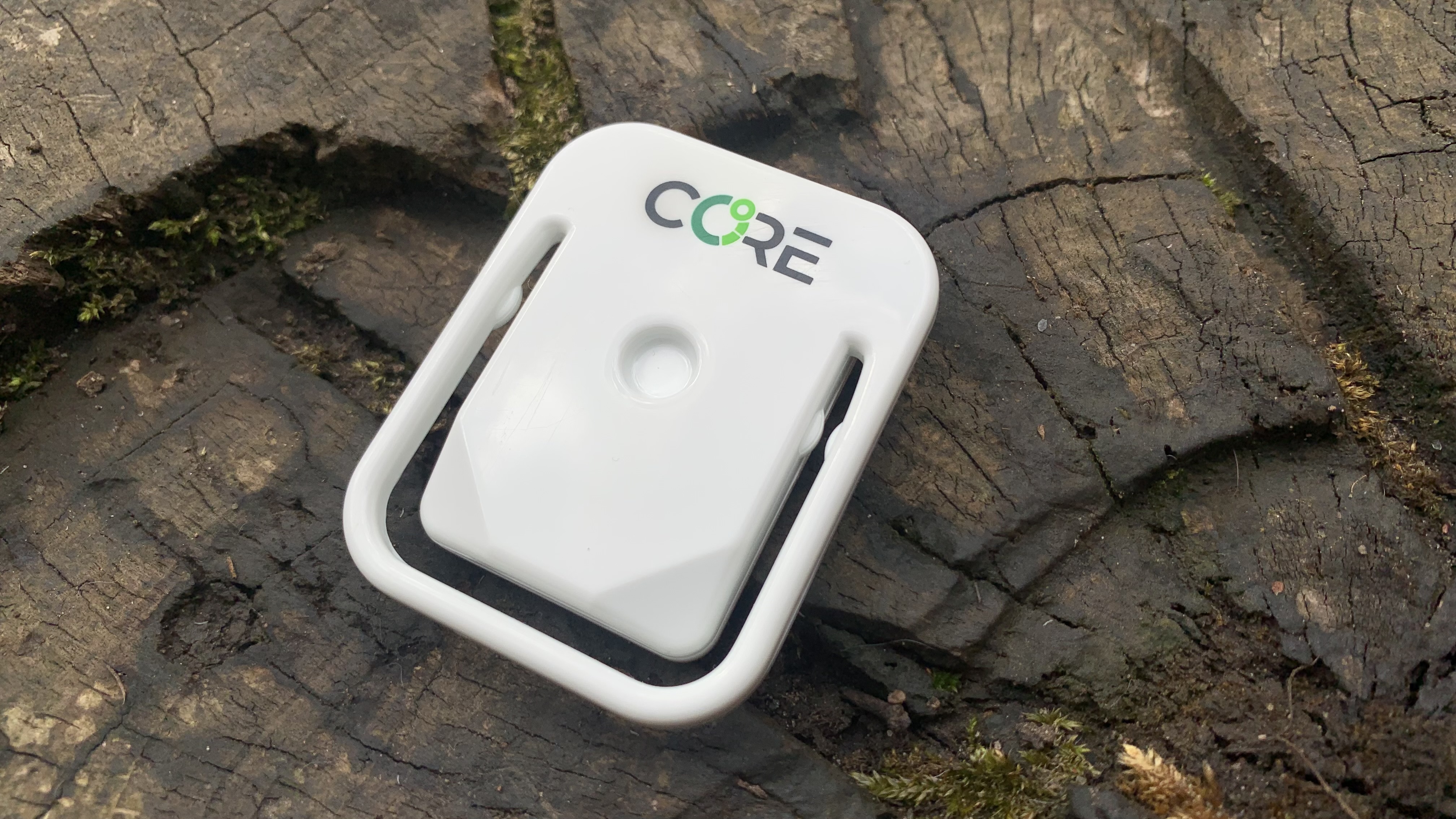Advnture Verdict
This down jacket is one of the lightest we've ever tested, and uses Columbia's latest Omni-Heat technology to keep you warm in low temperatures, plus it repels water and tucks neatly into its own pocket so you can use it as a pillow at camp
Pros
- +
Ultralight
- +
Warm and breathable
- +
Water and stain-repellent
- +
Packs into its own pocket to double as a pillow
- +
Zippered chest and hand pockets
- +
Drawcord adjustable hem
Cons
- -
No recycled materials used
- -
A little neat around the hips
You can trust Advnture
Meet the reviewer
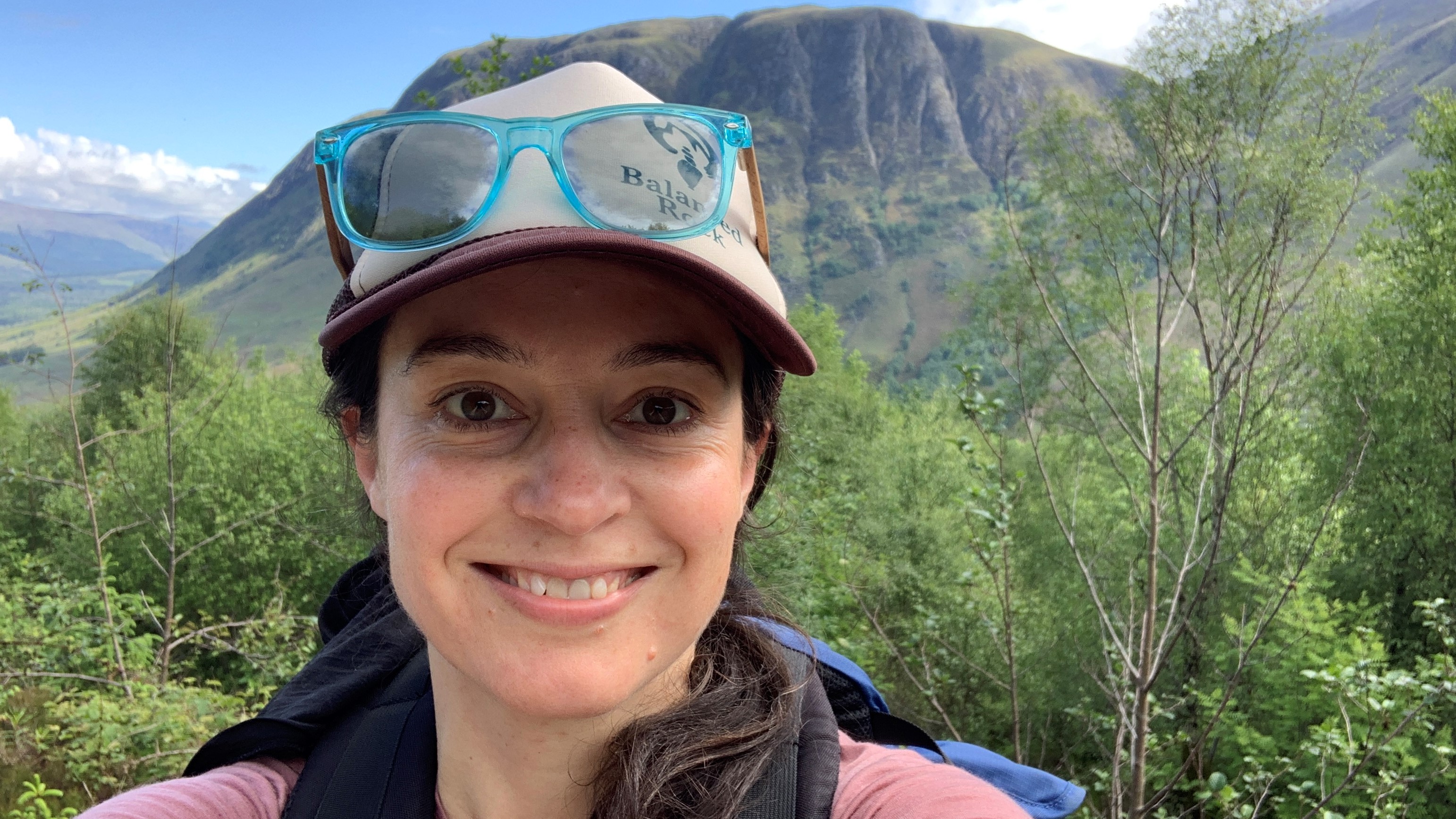
Julia Clarke is a staff writer for Advnture.com and the author of the book Restorative Yoga for Beginners. She loves to explore mountains on foot, bike, skis and belay and then recover on the the yoga mat. Julia graduated with a degree in journalism in 2004 and spent eight years working as a radio presenter in Kansas City, Vermont, Boston and New York City before discovering the joys of the Rocky Mountains. She then detoured west to Colorado and enjoyed 11 years teaching yoga in Vail before returning to her hometown of Glasgow, Scotland in 2020 to focus on family and writing.
Columbia Arctic Crest Down Hooded Jacket: first impressions
Just in time for colder weather, Columbia has launched a new technology and packaged it into this extremely lightweight and effective down jacket. The Arctic Crest Down Hooded Jacket utilizes Omni-Heat Arctic technology – which uses biomimicry to imitate the way a polar bear's fur keeps it warm – to attract the sun’s rays via black dots on the lining. It then holds that heat close to your body using 700 fill goose down.
On our field tests in the Alps, we found this jacket to be extremely warm, especially given how lightweight it is – easily one of the lightest we've ever tested. It's also impressively breathable if you want to keep it on while you're climbing. Bindings on the hood and cuffs plus a drawcord hem help to block out a chilly wind when you're on a breezy summit or hanging out at camp.
• List price: $280 / £345
• Gender specification: Men's and women's sizing available
• Sizes: Men's S - XXL, Women's XS - XXL
• Weight (women's S): 10.9 oz / 310 g
• Materials: Shell: 100% Nylon. Insulation: 700 Fill Power Goose Down Insulation, RDS Certified
• Colors: Black, Mountain blue, Nimbus grey, White, Moonvista
• Best use: Hiking, camping
This jacket has useful handy zipped pockets – two for your hands and a chest pocket which are great for keeping gear such as your gloves and phone close by. The real beauty here though is that the entire jacket packs into the left-hand pocket, which then zips up to make this jacket easy to pack, or allow it to double as a camping pillow.
Water-repellency means you don't necessarily have to leap for your waterproof jacket if you encounter a drizzle, which is handy because a shell would block the UV rays you want the jacket to absorb. Meanwhile, stain repellency helps you avoid frequent washing, and having to fluff your jacket again which can be laborious if you don't have a dryer.
Our only real gripes are that it's designed to be fashion-forward, which means it's snugger around the hips than we'd necessarily like, and there's no recycled content in the composition. However, it's a good price and we're impressed by the insulating technology.
Columbia Arctic Crest Down Hooded Jacket: in the field
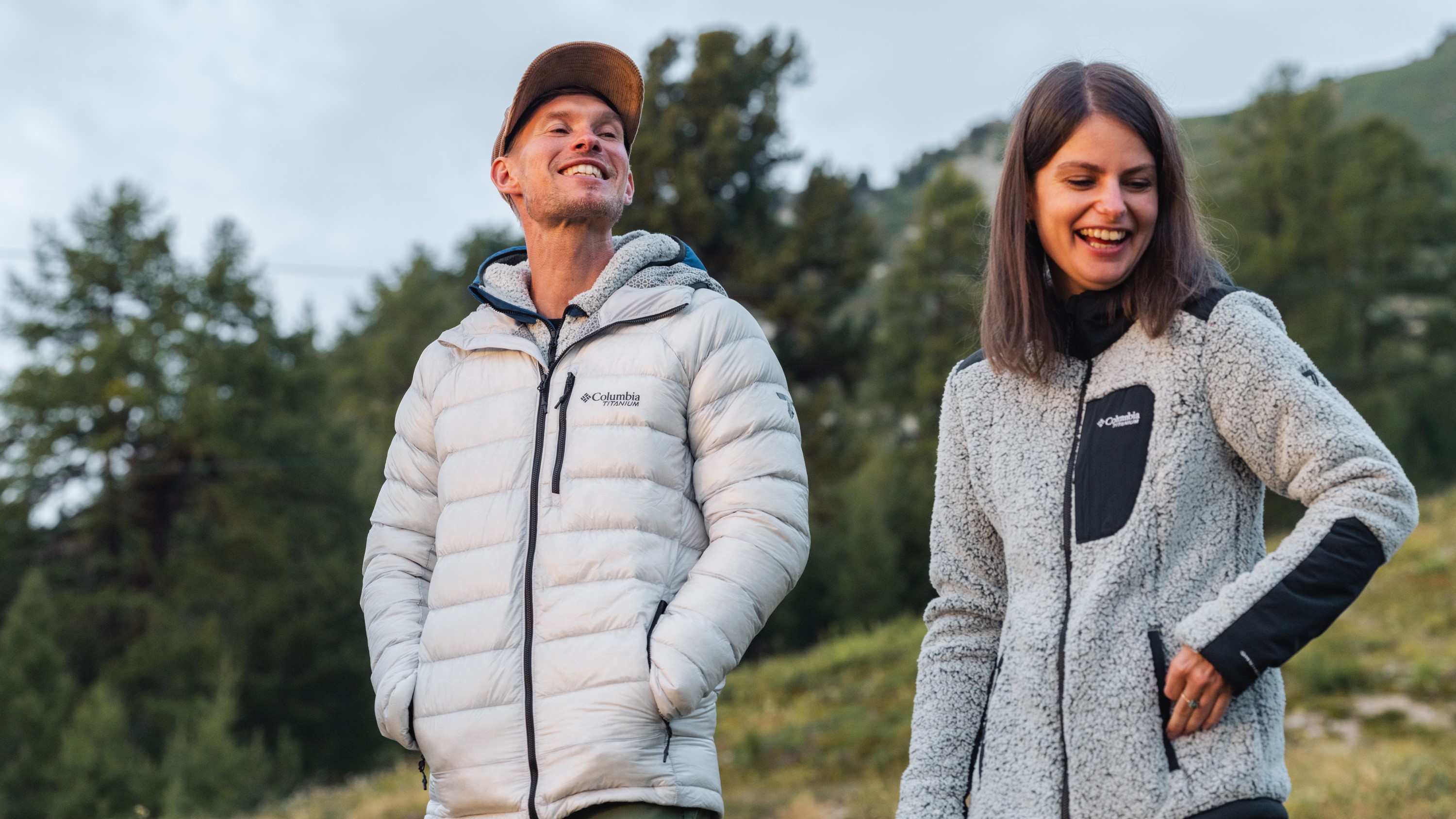
It's getting to be down jacket season and I'm always interested in a new technology from outdoors brand Columbia – I've previously written about Omni-Heat, Omni-Wick and OutDry Extreme technology, to name a few – so I was excited to get to test this jacket out recently on a press trip to the Swiss Alps.
Though it's not exactly freezing there yet, I had plenty of opportunities to test out this jacket in chilly fall conditions.
Here’s how it performed:
Sizing, fit and comfort
I tested a small which is my usual size and while Columbia gear does often run a little large on me, I think this jacket fits true to size. There is a caveat to that though – Columbia often does style their gear towards a younger generation and in this case, it means the jacket has quite a snug fit, particularly around the hips.
I don't have massively wide hips, but I'm not a string bean either and I was surprised at how neat this was at the bottom. It certainly didn't affect my movement or comfort, but I feel like it would only take a few extra inches of padding – be that natural or from wearing a thicker fleece under this – and I'd have trouble zipping it up.
That aside, I do like that it runs a little long for added warmth and I personally have no issues with comfort in this jacket and love the soft feel of the shell.

Warmth, breathability and protection
After quizzing the reps at Columbia about how the technology works, my understanding is that the black dots on the lining combined with the translucent shell material absorb the sun's rays, while the down traps it there in addition to your body heat for added warmth. In theory, anyway.
Obviously in practice, if it's nighttime or you're wearing a waterproof shell over the top, this jacket isn't going to be as effective, but I did get immediate warmth from it whether I was wearing it during the day or at night. I'm not sure if the technology works any better than any other down jacket with a black lining, but I do think it works even if that's largely down to the 700 fill power down.
I kept it on for one of our hikes and was also pleased by the level of breathability, which is a general benefit of down over a synthetic puffer.
It's also treated to be water-repellent, which is excellent news because it means that it can hold off a light shower (though not a heavy rain). This means I don't always have to layer up, and that in turns increases its insulating power since I don't have to block the sun's rays with another jacket.
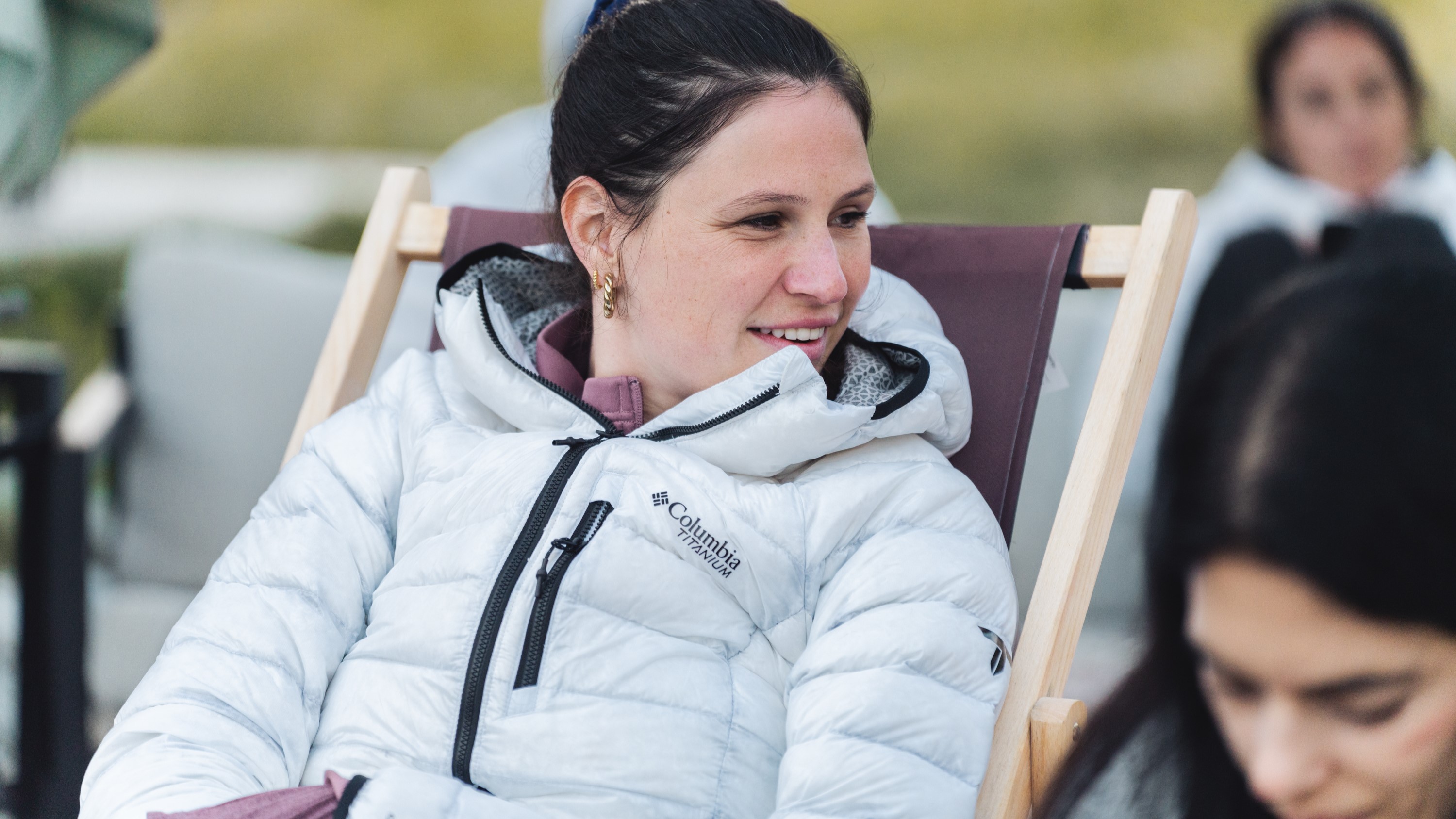
Weight, storage and other details
One of the most impressive features of this jacket is how light it is. I've compared it to several other down jackets that I've tested, and so far I can't find one that comes close to it in terms of weight. Obviously, for travel and variable weather, this is a huge bonus because you can enjoy dependable insulation without adding tons of weight.
All jackets need good storage in order to be technical and this one has two standard zipped hand-warming pockets plus a chest pocket which I ended up using for my phone when I was wearing a backpack.
The real bonus, however, is that the entire jacket packs away into the left-hand pocket, which then zips up. I don't know about you but generally when someone tells me a jacket fits into its pocket, I can get about two-thirds of it in then I run out of space and I've never been able to zip it up. This one actually works, however, and once it's packed away it's actually pillow-shaped. I don't know if they did this on purpose or if it's a happy accident, but I'd definitely bring this along and use it as a camping pillow any time I was expecting cold weather.
The only other main detail to mention is that the Omni-Shield repellency also makes it stain-resistant, which is super handy considering I received a white version to test. It looks great, but I wouldn't usually choose white hiking gear for obvious reasons. This will keep it looking good for a bit longer, and means I don't have to wash it as frequently.
Columbia Arctic Crest Down Hooded Jacket: the bottom line
If you're in the market for an ultralight but reliably warm down jacket, this jacket checks all those boxes, and the fact that it can double as a pillow is a really nice bonus for backpackers and travelers. That said, the snug fit around the hips may not be for everyone, and there is an argument to be made for a jacket that's less neat overall. For comparison, take a look at the Rab Infinity Microlight jacket which isn't quite as light, but has a more functional fit and comes with a stuff sack for packing.
Julia Clarke is a staff writer for Advnture.com and the author of the book Restorative Yoga for Beginners. She loves to explore mountains on foot, bike, skis and belay and then recover on the the yoga mat. Julia graduated with a degree in journalism in 2004 and spent eight years working as a radio presenter in Kansas City, Vermont, Boston and New York City before discovering the joys of the Rocky Mountains. She then detoured west to Colorado and enjoyed 11 years teaching yoga in Vail before returning to her hometown of Glasgow, Scotland in 2020 to focus on family and writing.
